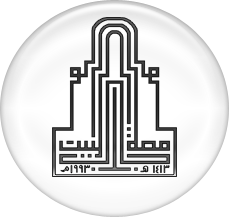| DC Field | Value | Language |
|---|
| dc.contributor.author | ألاء ملحم | - |
| dc.contributor.author | جهاد النصيرات | - |
| dc.date.accessioned | 2022-11-14T09:20:19Z | - |
| dc.date.available | 2022-11-14T09:20:19Z | - |
| dc.date.issued | 2022-04-26 | - |
| dc.identifier.uri | http://hdl.handle.net/123456789/2384 | - |
| dc.description.abstract | ملخص
هدفت هذه الدراسة إلى التعرف على موضع الخلاف بين المفسرين في الآية، وسبب الخلاف وأقوال المفسرين وأدلتهم التي اعتمدوا عليها، ومن ثم الموازنة بينها، بهدف الترجيح أو الجمع بين الأقوال.
فاعتمدت الدراسة مناهج الوصف والاستقراء والمقارنة. وتوصلت إلى مجموعة من النتائج أهمها: اختلاف المفسرين في تحديد دلالة لفظ "ينكح" من الآية الثالثة من سورة النور إلى قولين رئيسيين: الزواج والوطء. كما تمثل محل النزاع بين المفسرين في ثلاث قضايا رئيسية: سبب نزول الآية، صيغة الخبر في الآية، الإحكام والنسخ.
وقد استدل المفسرون بجملة من الأدلة المتصلة بالقرآن والحديث واللغة وأسباب النزول والإجماع، وقد سجلت الدراسة أبرز الإشكالات المتعلقة بالأقوال والأدلة ووجوه الاستدلال. وتبين أنّ الخلاف بين المفسرين في هذه الآية خلاف حقيقي، وقد خلصت الدراسة إلى ترجيح دلالة لفظ النكاح على معنى الزواج، وكون الآية الكريمة استئناف بياني أريد منه التمهيد لا التشريع، فالآية هنا غرضها التهويل والتفظيع لا الإباحة.
الكلمات الدالة: الخبر، النهي، عقد النكاح، الوطء، الزنا، التفسير المقارن.
A comparative interpretative study for Almighty saying:
"الزَّانِي لَا يَنْكِحُ إِلَّا زَانِيَةً أَوْ مُشْرِكَةً وَالزَّانِيَةُ لَا يَنْكِحُهَا إِلَّا زَانٍ أَوْ مُشْرِكٌ وَحُرِّمَ ذَلِكَ عَلَى الْمُؤْمِنِينَ"
From Surat Al-Nur
Abstract
This study aimed to identify the words of the interpreters of the verse, the reasons for their difference and their evidence, which relied upon then the differentiation and between these views in accordance with the scientific methodology. This study relies on induction description and comparison in collecting and analyzing the statements as to balance between these views.
This study concluded some interesting results, the most important of all were; the interpreters argued about the word "yankih" whether it meant to marry or to have an sexual intercourse. Other disputations were; the revelation reason of the verse , the predicate form in the verse and abrogation and rules. The interpreters deduced results using evidence related to the Holy Qur'an, hadith, language, the revelation reasons and consensus.
The study recorded the problematic issues related to interpreters views, evidence and deduction techniques which caused the disputation to be real. The study concluded to overweigh the word "to have an intercourse" over the word "to marry" for The veres aim is to intimidate not to permit.
Keywords: Predicate, Prohibition, Matriomony contract, Intercourse, comparative interpretation. | en_US |
| dc.subject | الخبر، النهي، عقد النكاح، الوطء، الزنا، التفسير المقارن. | en_US |
| dc.title | دراسة تفسيرية مقارنة لقوله تعالى: الزَّانِي لَا يَنكِحُ إِلَّا زَانِيَةً أَوْ مُشْرِكَةً وَالزَّانِيَةُ لَا يَنكِحُهَا إِلَّا زَانٍ أَوْ مُشْرِكٌ وَحُرِّمَ ذَٰلِكَ عَلَى الْمُؤْمِنِينَ[3: النور] | en_US |
| dc.type | Other | en_US |
| Appears in Collections: | المجلد 18، عدد 4 لسنة 2022
|

